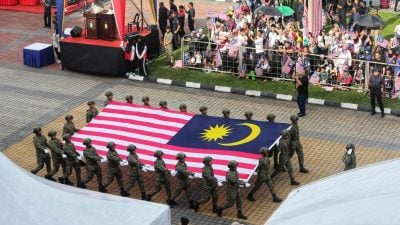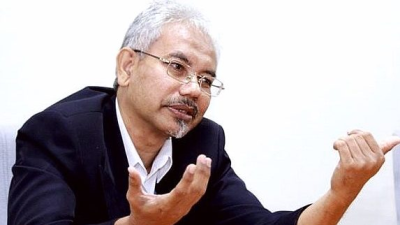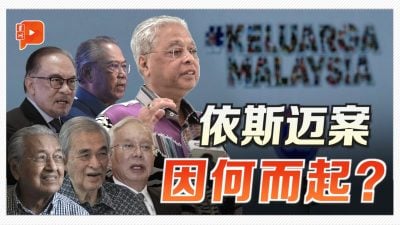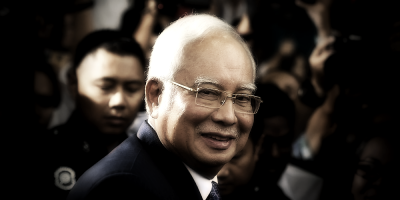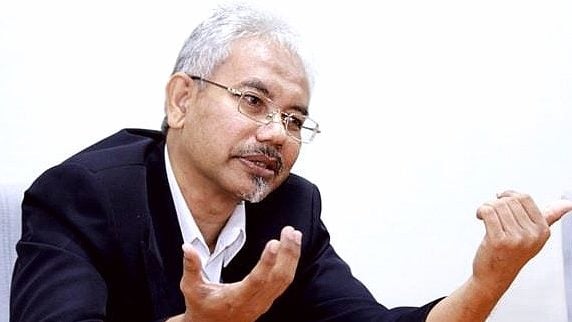
In this article, I will discuss what I see as five critical challenges of Islamic conservatism among the Malays that Malaysians need to understand, ponder and most importantly, respect.
The challenges are the ideas of an Islamic politics, Islamic character, an Islamic idea of a larger spirituality, Islamic concept and practice of pragmatism, and finally the relearning of Islamic values and dynamism.
The challenge of ideas about Islamic politics
The year 2023 began with three new politics of Islam and the Malaysian way.
Anwar had introduced his idea of Madani being a new civilised society that had compassion and respect for each other as well as imbued with rational and just thinking to develop the country in a sustainable and prosperous way.
The Malays were solidly behind PN, and did not want to understand what Madani stood for.
The conservatives in the offices of the muftis spurned the declaration of Madani, and Anwar turned to academics and the universities.
I could have told him that academics and the universities were no longer the same as in the 1990s because it had changed much into a self-glorifying entity with rankings and academic work dissociated from mainstream nation-building.
Secondly was the problem with Umno trying to redefine itself with the Youth, calling on the DAP to apologise.
The purge in Umno by Zahid to eliminate those who attacked Umno from within and were considered traitors had helped Umno and Zahid maintain control and thus, the attempts of enticing the Umno MPs became stalemate, for now.
Thirdly, conservatism came into a new dimension when Tun M, who lost his shirt and deposit in a stinging loss in Langkawi, invited PN to sign his Proklamasi Melayu.
Luckily, the deed was pre-empted with warnings of playing up the 3Rs by the royals and the police, and the traction subsided.
The third form of conservatism came in the insults of non-Malays by Hadi Awang and Sanusi.
Sanusi became an overnight phenomenon in GE15 as his brash gangster-style of vulgar politics made him, sadly, the most popular candidate in the election.
At the time of this writing, my call to initiate a fourth alternative of redefining the Malay mind and soul through the joint cooperation of ABIM-IKRAM and Umno-Amanah, but that has yet to occur and does not look likely to occur.
The challenge of defining the new Islamic character
The challenge in defining the character of Islam in the new Malaysia resulted in two kinds of approaches.
The first is Anwar’s attempt to show the side of Islamic Reform with noble characters of the religion as he had campaigned in the 1980s.
He prayed at different mosques on Fridays, gave many lectures to academics, held open houses for Hari Raya in many states, as well as served as witness to a conversion.
PAS, in the meantime, offered a different Islamic character of insulting non-Malays by calling them “animals”, as a corrupt entity, and that they were not fit to be leaders in a country of Muslim majority.
PAS had become worse than Umno which had sold the narrative of the supreme as well as the weak Malay but PAS is selling a war-like narrative of Islam against the others.
What was unfortunate was the reactions of Malaysians who did not understand the two approaches.
Malaysian netizens and civil society attacked Anwar for “pandering” to what they saw as populist Islam while criticising the Unity Government for not being assertive against people like Hadi Awang.
They reacted negatively to the conversion issue and the Imam Nawawi book introduction to school syllabus.
Thus, the challenge of conservatism in Islam comes in having to explain a better Madani Islam as well as the characteristic of the true Muslim.
There was also a need to understand that taking action against a popular figure like Hadi is tantamount to reliving the Memali bloody incident.
The challenge of an Islamic concept of a larger spirituality
The challenge of inculcating the larger spirituality has always been an encouragement in the Qur’an with the advice to respect the teachings of past prophets and their scriptures.
However, among the Malays, this act of accepting a larger spirituality has always been associated with the ideas of “sesat” or loss and the ideas of “liberalism” or being too free and loose.
Anwar, in his Asian Renaissance, had always shown his acceptance of a larger spirituality, and his Madani concept clearly expects that.
However, with the politics of the Malay mind being controlled fully by conservative ustazs and preachers as well as PAS leaders, the larger spirituality is a big challenge.
Fortunately, the YDP Agong had chosen to show an example of that when he and the Queen visited a Hindu family to celebrate the 100th birthday of an elderly lady.
Universities in Malaysia dealing with Islam and social sciences have totally failed to show any hope of having a Malaysia respecting different cultures, faiths and beliefs.
The issues of visiting other houses of worship has also come under fire and this bodes a negative future for unity and harmony in Malaysia.
The challenge of balancing, understanding Islamic pragmatism
Pragmatism in Islam, I learned a long time ago, is no stranger at all. The prohibition to eat pork is lifted when there is absolute necessity and scarcity of other halal choices.
The abstinence to fasting is allowed to travellers and sick Muslims. Prayers can be shortened and combined in travelling or under duress like floods and disasters.
Prayers can be performed anywhere that is clean and the Tayammum is prescribed when water is scarce.
Thus, living in a multi-cultural and multi-faith nation with different consumption culture as well as dress codes or values are pragmatic concerns that must be dealt with in wisdom.
The celebration of each religion came under fire when Bon Odori was prohibited by PAS, but was luckily thwarted by the royals who exerted their powers of religious authority.
PAS is actually a pragmatic party since the days of Reformasi, but I suspect that they are playing up issues of impropriety in pragmatic issues like concerts and alcohol in order to gain favour among the huge Malay community which are becoming more religious or religiously aware.
The fine lines between religion, community and politics are becoming battlegrounds and this poses a future challenge for this country.
The challenge of relearning Islam towards a nation-faith
Relearning inherited traditions and knowledge about profession, education and self-improvement is not an option in the 21st century.
The access to knowledge and experiences of humanity is now at our finger tips…literally.
The whole world of libraries and knowledge resources are at the command of a few clicks. And yet, many are steep in ignorance about issues because of their laziness to read and think deeply.
The challenge of Muslims who had inherited a tradition-based religious education has made relearning Islam a huge challenge.
The learning of religion through ritual instructions and the knowledge of the permissible and prohibited are again easily fathomable.
Muslims feel that these are the only knowledge curriculum they need to be in a state of piety heading towards paradise.
But as the world shrinks into the size of our palms, it is inevitable that attitudes and narratives as well as actions by others would intrude into the safe comfort of tradition.
This is where the challenge of relearning Islam as what Madani presents in order to raise Muslims and Islam into a more productive and beneficial society to mankind.
Unfortunately, the forces of greed for power has prompted PAS and mufti offices to resist the encouragement of relearning by condemning new ideas and thoughts in Islam, even by acknowledged scholars of world repute.
The policing of Islamic knowledge is no longer just by the religious affairs department but is now practised in universities supposed to be the bastion and frontier of all knowledge.
These are the challenges that Anwar and Malaysians will face.
Yes, economy is important, and yes, institutional reforms are paramount, but failure to see these conservative challenges as simply a one-point problem as important or least important than the other two will jeopardise this country to going nowhere or at worst, to an unfathomable abyss.
(Prof Dr. Mohd Tajuddin Mohd Rasdi is Professor of Architecture at a local university and his writing reflects his own personal opinion entirely.)
ADVERTISEMENT
ADVERTISEMENT






